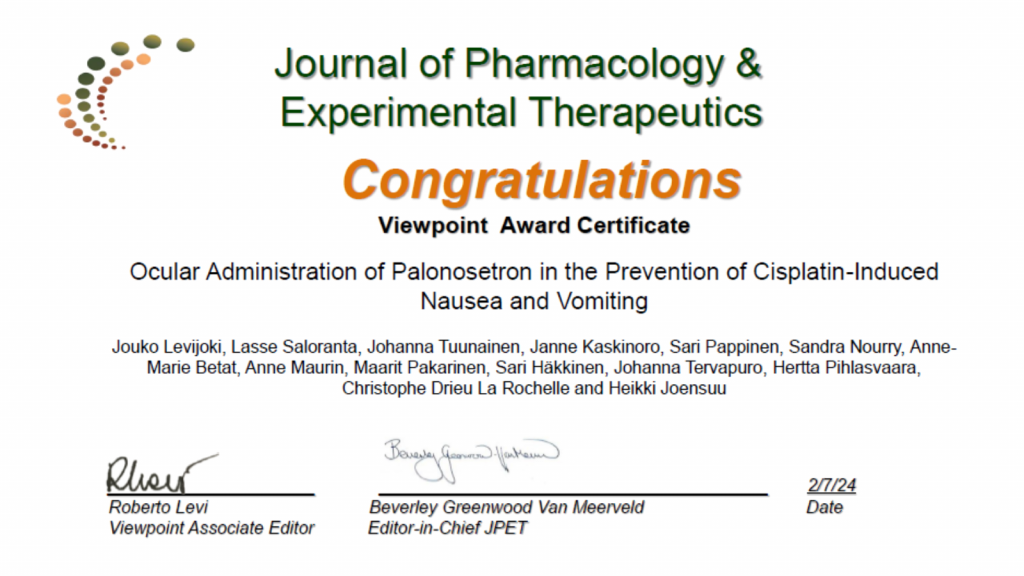
A Promising new approach to CINV – preclinical oncology research
Biotrial Contributes to Promising Research on Ocular Palonosetron in Preclinical Study

An article published in collaboration with Biotrial’s preclinical department titled “Ocular Administration of Palonosetron in the Prevention of Cisplatin-Induced Nausea and Vomiting” was awarded a certificate of recognition from the American Society for Pharmacology and Experimental Therapeutics – ASPET!
This research holds promise for a more convenient and effective way to manage nausea and vomiting, particularly for those undergoing chemotherapy. Biotrial remains committed to continuing oncology research and collaborating with the scientific community to bring new hope to cancer patients.
What is CINV?
Chemotherapy-induced nausea and vomiting (CINV) is a common and debilitating side effect that affects up to 40% of patients undergoing chemotherapy cancer treatment. It can significantly impact their quality of life and treatment adherence.
Why are new CINV treatment options important?
While current medications exist to address the effects of CINV, they can be intrusive or have limitations. Ocular palonosetron offers a potentially non-invasive alternative.
What are the highlights of this study?
This study explored the potential of administering palonosetron, a well-established antiemetic drug, through eye drops. This approach offers several potential advantages:
Faster Absorption
The study found that palonosetron delivered via eye drops entered the bloodstream rapidly, reaching similar levels as intravenous administration within 10 minutes.
Convenience
Compared to traditional intravenous (IV) administration, eye drops could provide a quicker and potentially less invasive method for delivering medication.
Effectiveness
The research demonstrated that palonosetron eye drops were significantly effective in preventing nausea and vomiting in dogs receiving cisplatin, a chemotherapy drug known to cause these side effects.
The Importance of Further CINV Research
While these results are encouraging, it’s important to note that this study was conducted in animals. Further clinical trials are required to assess the safety and efficacy of ocular palonosetron in humans.
This research signifies a significant step forward in exploring new avenues to combat CINV. Biotrial remains committed to continuing this research and collaborating with the scientific community to bring new hope to cancer patients.
